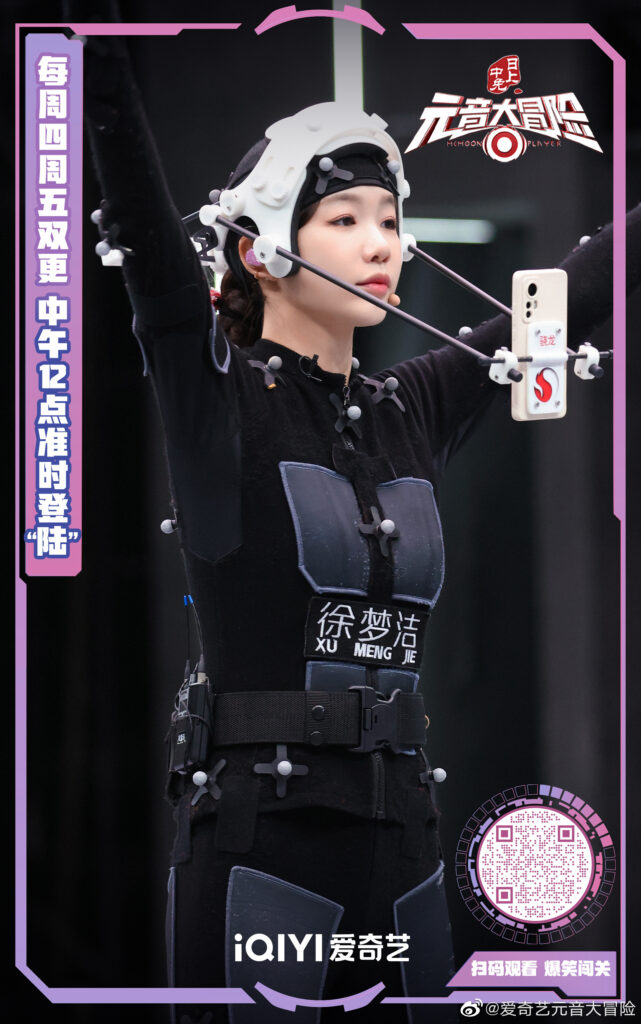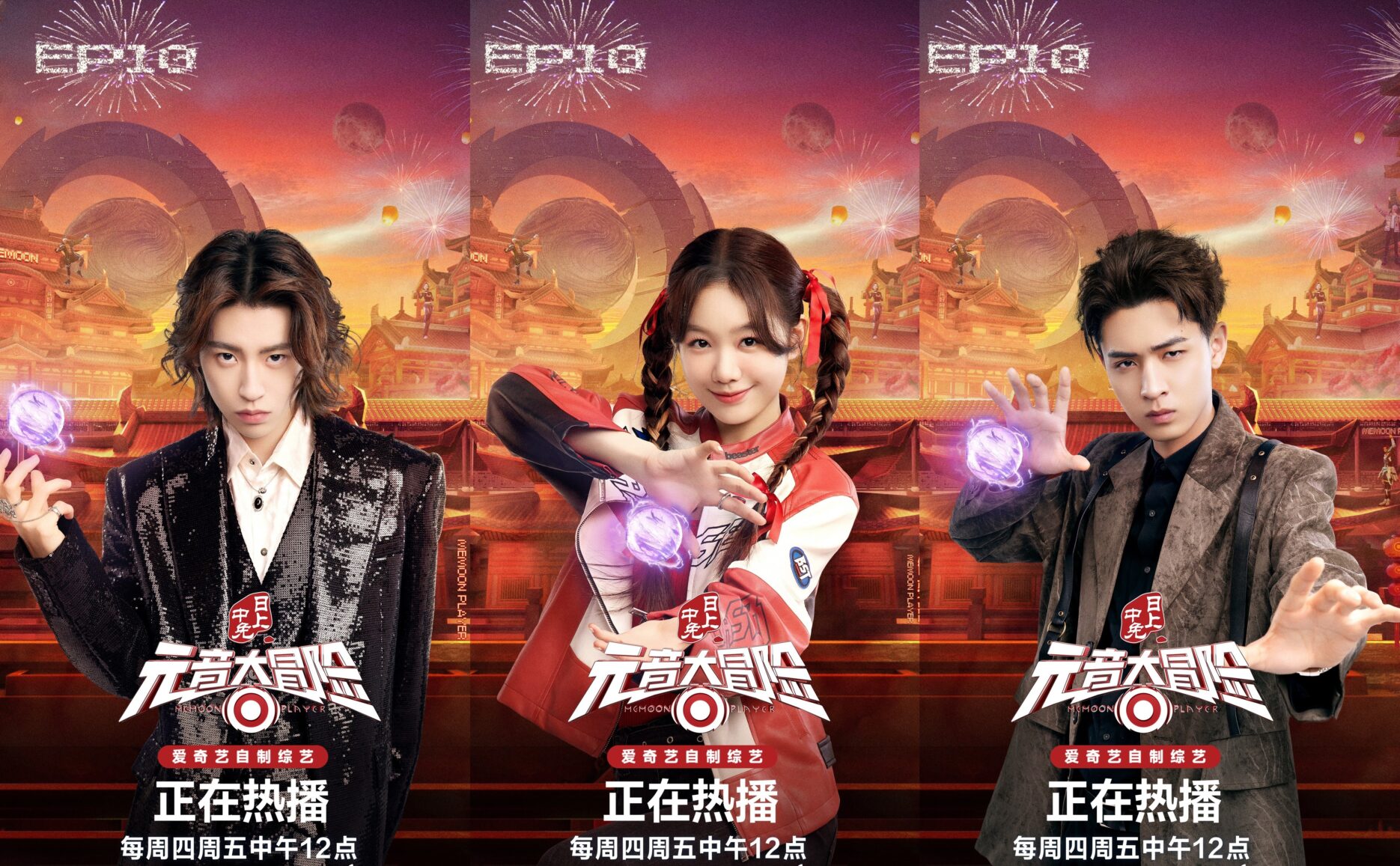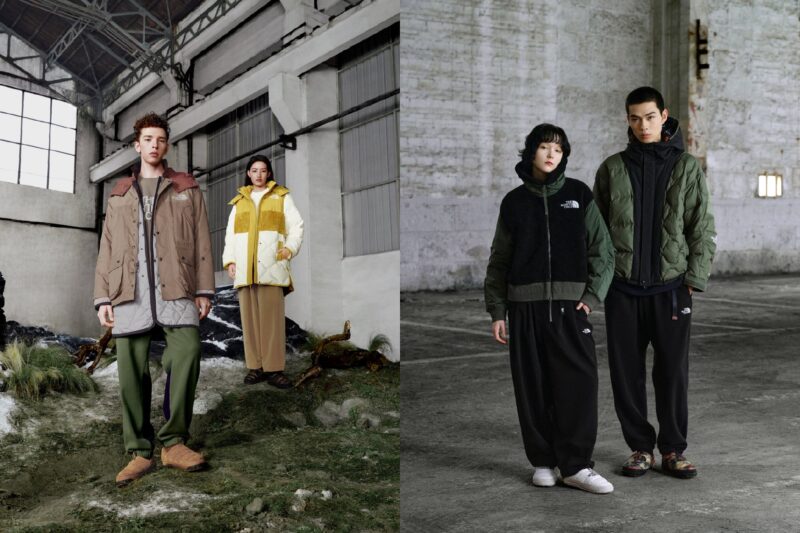As the “Metaverse” balloons into the world’s hottest buzzwords and most-watched industries in the world, Chinese entertainment has jumped at the opportunity to capitalise on the growing trend. The latest release of the virtual reality (VR) game-based variety show “Memoon Player” has not only captured the attention of young tech-savvy Chinese audiences but has also presented the promising future of marketing in the Metaverse.
Produced by the online video platform iQiyi, the show gathers a total of six talented stars to embark on a digital adventure to the VR world of “Memoon”. Donning motion capture suits that stream their body’s motion in real-time through 72 movable points, each player will participate in a series of competitive games as virtual avatars that mimic their every movement. Moreover, in order to capture the stars’ movements with precision.
Memoon Player stands as the first variety show in the world to enable interactions between both the virtual and real world.



At present, Memoon Player stands as the first variety show in the world to enable interactions between both the virtual and real world by integrating holography into a motion capture studio.
Not only does the show bring a new viewing experience to the audience but it also has subtly changed the way the variety show is marketed.
All eyes on Memoon
Thanks to its highly creative games and comical highlights, Memoon Player has frequently appeared on Chinese social media’s hot searches after it started broadcasting. Viewers highly anticipated the show before it aired, with more than 1.2 million viewers showing interest in the iQiyi app before the show’s official premiere. Since its debut in December 2022, the VR variety show’s Weibo hashtag “Memoon Player” has amassed a staggering 1.83 million views and nearly 5 million related discussions.
Not only does its Chinese audience enjoy the programme for its innovative concept in the fascinating world of VR, but they also enjoy its many instilled values. The program goes right to the hearts of its viewers by teaching the value of perseverance and camaraderie through its lighthearted and endearing content.
The program goes right to the hearts of its viewers by teaching the value of perseverance and camaraderie.


Another reason this show is such a hit is that it is highly in line with the entertainment preferences of the “M generation” (Meta-Generation). Given that this group of people were born in the mid-90s and beyond and grew up in the era of intelligent devices means they are more likely to tune into this sort of variety show.
Making the most of Metaverse marketing
Knowing very well the treasure trove that lies in Metaverse marketing, brands are increasingly diving into technology to enhance users’ experience and cater to the growing demand for highly interactive entertainment and products.
For instance, during the show, a “Metaverse New Year Fireworks Show” and electronic music party was jointly hosted with Heineken Beat and invited the audience to enjoy the fun with a beer in hand. In celebration of the special holiday, the Dutch beer company exclusively offered a virtual fireworks show that would not easily be seen otherwise in real life in China due to the government’s stringent pyrotechnic restrictions. The sense of presence and ceremony offered by this tool is perhaps the greatest appeal for future Metaverse marketing trends.
The sense of presence and ceremony offered by this tool is perhaps the greatest appeal for future Metaverse marketing trends.
Providing unique opportunities in the Metaverse is key to wooing China’s Gen Z market, and that is exactly what Memoon and Heineken’s collaboration did for its audience members. In fact, one user moved by the event stated, “When I was a child watching fireworks at home, I was always blocked by the buildings outside the window. This time, I was very moved when I saw the complete fireworks in the metaverse world.”
Another intriguing aspect of this particular show is the “Memoon Land” app, a virtual interactive space designed to offer users a fully immersive experience with integrated social elements. Here, the app allows viewers to watch the show but also be a part of the games, interact with other viewers, and even purchase show-related merchandise. During the show itself, several subliminal advertisements are shown and are most likely sponsored by their respected brands. In the app itself, users can earn points through the Metaverse which they can use to consume products.
According to Daxue Consulting, financing of Chinese Metaverse-related projects soared to a whopping 5.7 billion USD in 2021. The following year saw another jump to 8.1 billion USD from January to March alone. Moreover, given the fact that the virtual idol market in China was valued at 101 billion RMB (15 billion USD) in 2021 and is expected to triple by the end of 2023, combining both the idol world and Metaverse world would provide plenty of benefits to companies seeking to break into the Chinese market.
All in all, the rise of the Metaverse ushers in a new generation of content consumption that could be a literal complete game-changer for advertising campaigns in China. It could even mean the end of traditional commercials on TV and radio and the beginning of real game experiences. Whether it’s virtual fireworks, in-app shopping or rewards, sponsored events or subliminal advertisements, the options are endless for profitability in the Metaverse.









